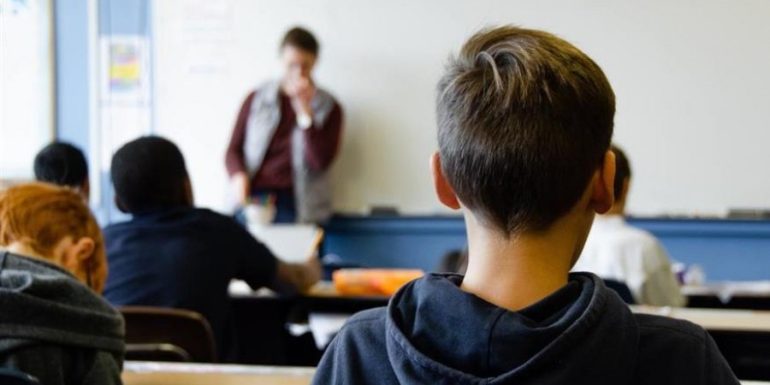People are going through the worst educational crisis ever recorded in two years due to the pandemic covid-19 with a longer or shorter suspension of school operations, but progress was made in the second year of the health crisis.
Countries are adapting
According to Unesco, the problems caused by education in the pandemic are the worst educational crisis ever recorded.
"However, we are witnessing a remarkable change between December 2021 and January 2022: schools are no longer closed en masse, countries have managed to stabilize a new crisis management model, which enables them to keep schools open thanks to the adoption enhanced and safe health protocols ", emphasizes Unesco.
Many countries - including France, Brazil, and even Mexico - have adopted measures such as closing classes on a case-by-case basis but also more traditional ones, such as the use of a mask and frequent hand washing.
In Greece, France, Canada and Italy students regularly undergo diagnostic tests for covid-19.
Schools are currently open in 35 countries. Around the world, 25 countries have chosen to postpone the reopening of schools for a few days after the Christmas holidays. Twelve chose to close them completely, compared to 40 in the same period last year, Unesco noted.
"The message that it is vital that schools remain open, from a social point of view and for the well-being of children, has been passed on to various countries," he explains.
In the last two years, the countries that have suspended their schools for the longest period, more than 60 weeks, are Bangladesh, Kuwait, the Philippines, Uganda and Venezuela.
In contrast, four countries have never closed their schools since the beginning of the pandemic: Belarus, Burundi, Nauru and Tajikistan.
No dozen have ever completely shut down schools, including Russia, the United States and Australia.
Impact
School closures, regardless of duration, have dramatic consequences, especially for middle- and low-income countries. In this category, the percentage of children affected by poor learning - which was 53% before the pandemic - may reach 70%.
In some parts of Brazil, Pakistan, rural India, South Africa or even Mexico, among others, there are significant losses in learning math and reading.
According to Unesco, with a view to 2030, "no region in the world is expected to be able to offer all children secondary education", "teachers estimate that only one third of students will have basic math skills" and " 33% of students will not be able to read a sentence at the end of primary school ".
In the long run, the current generation of children in school is at risk of losing nearly $ 17 trillion in revenue due to the pandemic caused by the closure of schools due to the pandemic, warns the World Bank and UN agencies.
"The learning loss that many children face is morally unacceptable. "And the potential increase in underdeveloped learning could have a devastating effect on the future productivity, income and well-being of this generation of children and young people, their families and global economies," said Jaime Sanandra. Bank, cited in a report published in December.
"The priority now is to 'bring all the children back to school, especially the girls in some countries,'" Unesco said.
Source: RES-EAP
